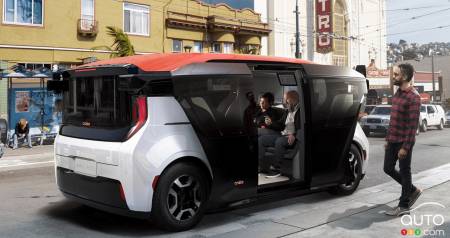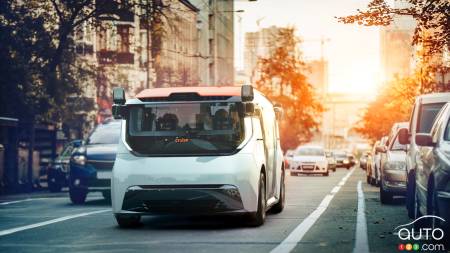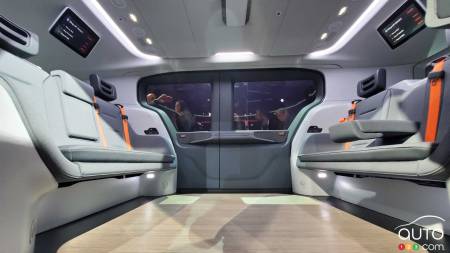Autonomous-driving vehicle manufacturer Cruise said Wednesday that it will, along with its majority shareholder General Motors, seek approval in the coming months to deploy a limited number of Cruise Origin vehicles, which are not equipped with a steering wheel or pedals.
At the same time, it will withdraw an exemption request filed with the National Highway Traffic Safety Administration (NHTSA) back in January 2018. The NHTSA was seeking approval to release a limited number of similar stand-alone vehicles based on the Chevrolet Bolt. NHTSA is the U.S. equivalent to Transport Canada.
The NHTSA, which has been reviewing the application for the past 15 months moving to the public hearing stage, said Wednesday it “will consider the new application when it is received”.
Cruise first unveiled the Origin back in January. The vehicle’s interior consists of two long seats facing once another and is designed to comfortably accommodate four passengers. GM plans to begin construction of the Origin in Detroit in late 2021 or early 2022.
Robert Grant, Cruise's Vice President of Global Government Affairs, made the announcement after the firm received a permit last week from the California Department of Motor Vehicles to be the first to test driverless cars on the streets of San Francisco. Four other companies have similar permits for cities in the Silicon Valley region, which are easier to survey.
Discover Shopicar! All new makes and models and all current promotions.

Under the current law, companies can apply for a waiver of motor vehicle safety standards for up to 2,500 units that do not meet current federal regulations for a period of two years.
The exemptions relate to U.S. vehicle safety rules, written largely decades ago, which assumed a human being was in control of a vehicle.
In 2018, GM applied for a temporary exemption in regards to items such as mirrors, dashboard warning lights and turn signals designed for a human driver. The company initially hoped to obtain authorization to deploy driverless vehicles by the end of 2019.
NHTSA has considered revising its motor vehicle safety rules to remove "unnecessary regulatory barriers to the safe introduction of automated driving systems”.





